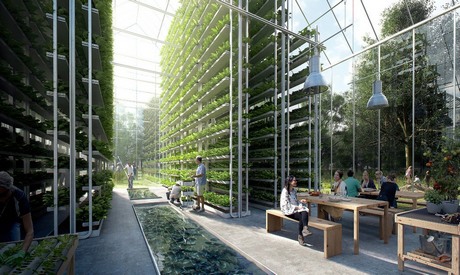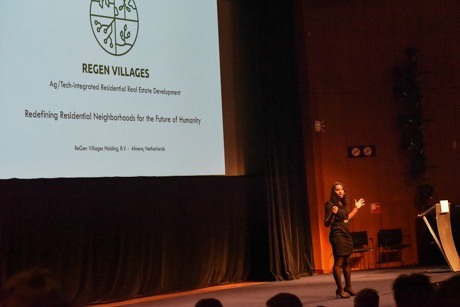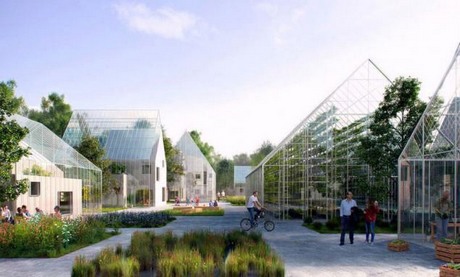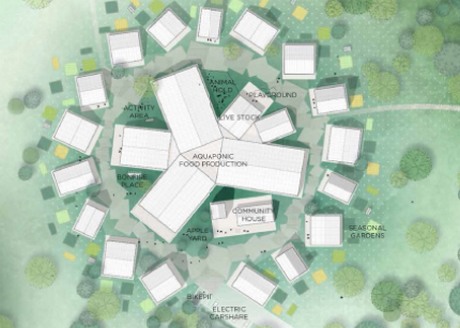
The aquaponic food production will be the centre of the Regen Village
Shiamatey, a Dutch business development manager and founding member of Stanford University's spin-off Regen Villages, pitches the idea of the ecovillage as a one of its kind. With the integration of sustainable installations and production technologies, the families living at the first pilot project will be able to live fully self sufficient. The Regen Villages homes will not only use renewable energy sources and water conserving installations, but also many vertical and high tech farming concepts to enable its community to farm their own food in the most sustainable way possible. The homes will be equipped with state of art technologies that are the result of dedicated research studies in order to conserve and preserve water and mitigate waste streams.

Marjolein Shiamatey of Regen Villages at the AVF Summit last month in Amsterdam.
The village will be equipped with aquaponic and aeroponic farming installations, as well as other high yielding organic growing methods. At the AVF congress, Regen Villages explained that this is the future of farming as cities, families and homes need to become self-relient, not only by producing their own food, but also by using their own natural energy sources like wind, solar and geothermal.

Shiamatey expressed that the circularity of the villages are key; the symbiosis between the aquaponics and other waste-to-resource systems is crucial in order to create a community without any ecological footprint. As well as this, the inhabitants will be part of the research and development within the city centre, guided by a curriculum and contributing to further innovation.

This summer the construction of the first 100 pilot homes starts in Holland. But the group has the the ambition to scale the concept globally, especially in tropical climates, as their concept can be carried out basically everywhere, thanks to the use of controlled environment agriculture.
For more information: www.regenvillages.com
